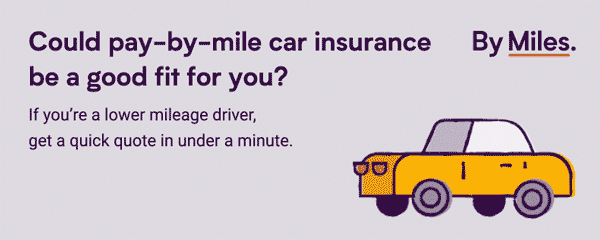Cleaner air, safer roads, and healthier kids – why not try leaving the car at home and walk to school instead this October?
Back in the 1970s, 74 per cent of children walked to school every day. By 2015, that number had fallen to 48 per cent. Charitable organisation Living Streets wants to get this number back up to 55 per cent by 2025. That’s why they launched International Walk to School Month, which will last throughout October 2019.

How do we get kids out of the car, and onto the pavement? A recent study by the British Lung Foundation indicates that all we need to do is change our habits. Sounds simple enough. They found that the average parent lives just two miles, or a 13 minute drive, from their child’s school. Half of the parents surveyed said that it would be feasible for them to walk the distance, but they choose to drive instead.
There are a lot of reasons why parents might feel this way – with time constraints, safety, and force of habit coming top of the list.
But there are also some really compelling reasons why it might be time to change up your routine. Here are six benefits you might get out of switching up the school run this October.
1. It makes the roads around schools safer.
In a recent poll by walking and cycling charity Sustrans, 90 per cent of parents said they’d like there to be less traffic around their child’s school. Fewer exhaust fumes, more space, and all-round lower risk. It’s basically a no-brainer.
Back in 2013, figures gathered by insurers indicated that more than 1,000 children a month were being injured on local roads around British schools. The same survey found that 37 per cent of local school areas had at least one child road injury per year between 2006 and 2011.
Children are simply more vulnerable around busy roads – recent research shows that they struggle to accurately judge the speed of any oncoming traffic over 20 MPH – so it makes sense to aim to make school roads as car-free as possible.
2. It makes the air cleaner.
In the same study, 45 per cent of the children interviewed said that they were concerned about air pollution around their school.
And they’re right to be concerned. Greenhouse gas emissions are going up in recent years, especially in city centres, and transport is definitely the biggest cause.
Eco campaigners say that we need to urgently start rethinking and cutting down on our car use – and that includes choosing to walk to school if the option is available.
3. It’s good for your health in almost every way…
Walking Works, a report endorsed by Public Health England, showed that one in three adults in England is not getting their recommended 30 minutes of physical activity per week. Even more concerning is the finding that 49 per cent of children are also failing to meet the guidelines.
The ways in which walking has been proven to improve your health are so vast that it can sound like a miracle cure. According to Diabetes UK, people who regularly walk have a 33-50 per cent lower risk of developing type 2 diabetes. Cancer Research also say physical activity could prevent up to 3,000 cases of cancer per year.
Scientists at Lawrence Berkeley National Laboratory have even argued that regular, brisk walking is better for you than taking up running. That includes mental and emotional health. Study leader Dr Paul Williams told the Guardian:
“People are always looking for an excuse not to exercise but now they have a straightforward choice to run or to walk and invest in their future health.”
4. …that includes mental and emotional health.
It’s not just your child’s body that will benefit from walking every day. The NHS also recommends regular moderate exercise as a way to protect mental and emotional wellbeing, in particular as it helps to ease the symptoms of mild depression or anxiety.
Plus, it could make your child better at school: a small study at Stanford University found that people who walked, in comparison to those who were seated, gave 100 per cent more creative answers to questions.
5. It helps children to discover the world around them when they walk to school.
All of us – not just kids – could benefit from spending a bit more time outside, and a bit less time glued to the blue backlight of their iPad. Walking to school is a great way for kids to experience more of the outside world beyond their screens.
It could be valuable socialising time for them, as they bond with friends. It could also help with their executive function, as they have to get to grips with the layout of their town or city, and think about their route more than they would while sitting in the back of a car.
Plus: there’s the benefit of experiencing nature. Some experts are worried about children of the 2010s growing up with “nature deficit disorder”. A 2010 University of Essex study showed that just five minutes of “green exercise” a day could produce improvements in a child’s wellbeing.


6. It could save you a lot of money.
Skipping the daily drive to and from school could save you a lot in fuel. If the average parent lives two miles from their child’s school, then driving there and back every day would cost 78p. Over the course of a school year (40 weeks), that’s around £156.
Plus, switching to a car insurance policy from By Miles will give you the opportunity to save on your car insurance when you use your car less, and perhaps start to think differently about driving the car just around the corner. Like our member John, who was interviewed by the BBC, and said that his pay-by-mile policy had made him think twice about driving the little trips.
But don’t all car insurers charge you less for your insurance if you drive less? Well, not exactly, no. We carried out some research with MoneySuperMarket that showed motorists driving between 5,000 and 6,000 miles per year were actually being charged an average of £233 more on a traditional car insurance policy than those driving 11,000 miles per year.
The thing is, when you switch to a pay-by-mile policy like ours, you could save money on your car insurance every time you choose to walk the kids to school instead of driving. At the same time, you’ll be making a better choice for the environment, road safety, and your family’s health. It’s a win-win.
Will you be pledging to walk to school this month? If your school run will be car-free for October, let us know on Twitter or Facebook.




